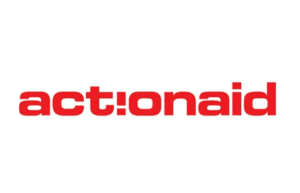Let’s combat modern slavery together – ActionAid
 Miss She-Vera Anzagira, the ActionAid Ghana Regional Manager for Greater Accra, Oti and Volta Regions, has appealed to state institutions and Civil Society Organisations (CSOs) to help reduce modern day slavery together through networking and collaboration.
Miss She-Vera Anzagira, the ActionAid Ghana Regional Manager for Greater Accra, Oti and Volta Regions, has appealed to state institutions and Civil Society Organisations (CSOs) to help reduce modern day slavery together through networking and collaboration.
Miss Anzagira said there was the need to increase sensitisation on the prevalence of the issue in Ghana since it impacted negatively on the country’s development.
She stated that no single organisation could fight the canker alone, so there was the need to network and contribute towards its reduction if not total eradication, adding, combating modern slavery in Ghana was a shared responsibility involving everyone.
Miss Anzagira, made the appeal at a two-day capacity-building workshop at Nsuta-Buem in the Jasikan District of the Oti Region organised for forty-five participants drawn from Kadjebi, Jasikan and Nkwanta-South Municipality.
She said in contributing towards addressing the phenomenon, ActionAid was implementing a project titled: “Combating Modern Slavery in Ghana” with support from Norwegian Agency for Development Co-operation (Norad).
Participants, selected from NCCE, CHRAJ, Social Welfare, Police, GES, CSOs, FBOs, among others, were trained on forms and what constitute modern slavery, factors contributing to it, its effects and their roles in fighting the menace.
The Oti Region recorded the highest cases of child labour with 20.8 per cent cases according to the 2021 Population and Housing Census figures.
She said, modern day slavery manifested in the form of commercial sexual exploitation, child labour trafficking, debt bondage, forced marriage and domestic servitude, and forced labour was quite common in Ghana, but unfortunately, received little or no attention.
Miss Anzagira said the project aimed at ensuring that vulnerable population of women and children in Ghana were better protected from abuse, exploitation and their possibility of falling into modern slavery.
She said one critical gap that perpetuated and entrenched modern slavery was lack of informed voice within society to speak against the issue.
The Regional Manager said ActionAid Ghana believed that CSOs, FBOs and state agencies were critical to filling in the gap providing information and being a voice against modern slavery, hence the workshop for them.
Miss Anzagira explained that the project also sought to complement government efforts in eradicating modern slavery which manifest in the form of forced labour, child labour, human trafficking, debt bondage and unfair contract farming practices.
She said their project objectives were to facilitate the implementation of measures to identify, prevent and address modern slavery within the agriculture sector, eliminate the involvement of child labour and women in agriculture plantations under conditions of servitude and to enhance the knowledge of individuals and communities on modern slavery practices, so they could act in concern to prevent such practices.
The Regional Manager stated that though poverty had been identified as the main cause, it could be reduced through wealth creation since poverty could not be eliminated but reduced.
She said ActionAid hoped to directly reach a total of 26,700 beneficiaries and 15 million people indirectly with the modern-day slavery messages, so that together we tackle the menace.
Miss Mawunyo Aziave, a Consultant to ActionAid Ghana, advised the participants to always try to identify the act, means, and the purpose of the modern slavery to enable them to know how to address it effectively.
She said globally, 40 million people were enslaved daily, 21 million forced labour, 15 million forced marriage, four million sexually exploited and that 71 per cent were women and girls, while 25 per cent were children.
She said 23 per cent were in Africa with the highest prevalence rate of 7.6 victims for every 1,000 people and, thus, called on the participants to report these activities to the appropriate agencies for action when they observed or saw their occurrences.
The participants identified poverty, unemployment, parental neglect; get-rich quick phenomenon, greed, ignorance, laziness, among others as some of the causes of modern-day slavery.
Source: GNA
